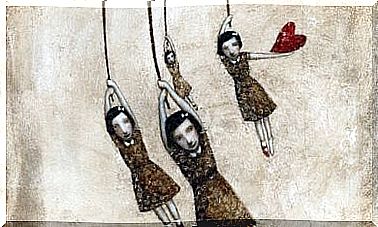Music Can Change The Structure Of The Brain

We have known for a long time that music plays an important role in the learning process. Musical training actually stimulates different parts of the brain. It can change the structure of the brain. Several studies have shown that listening to certain songs and melodies can improve memory in patients with Alzheimer’s and other types of dementia.
Music can help you retain information better and make the learning process as good as possible. This is because it helps you pay more attention. It arouses emotions and stimulates visual images. Students of all ages can use it. Because it helps them concentrate better. In addition, it enhances their memory and retention of the material they are learning.
So using music can help the learning process. But one of the biggest advantages is that there are multiple styles for each learning method. In this article we give some tips on how you can use music to acquire specific knowledge according to the experts.
What kind of music is best for you to study?
Now is a good time to make an important distinction. Because studying is not the same as learning. The purpose of studying is learning. But not all kinds of learning can be achieved by studying. So we know that music plays an important role in the learning process. However, the position of some experts is that silence is best for studying.
Music can be a good way to create a certain atmosphere. Researchers have found that certain melodies enhance some cognitive abilities, such as spatial intelligence. They also discovered that music can help put you in the perfect frame of mind. That way you can study better and faster.

For example, you can use a happy melody. Because it will motivate you to learn. Especially songs with lyrics that promote positive thinking can help you with this. You can also use music to increase your energy level, focus your attention on the material or relax during breaks.
Using music can also stimulate and increase the power of your memories. It thus ensures that learning becomes more sensory and interactive. Thus, parents and teachers can use certain melodies and lyrics in a convenient way. Because they are very useful for teaching children and students.
Music and concentration
Music can also be useful for keeping your concentration in situations where silence is not possible. Sometimes it’s hard to cut yourself off from other sounds. Then it can be difficult to concentrate. Many people struggle with staying attentive when there is a lot of background noise.
Researchers at Rensselaer Polytechnic Institute in Troy, New York, recently made a discovery. Listening to sounds from nature can improve mood and concentration. Because they can cover up all the unintelligible chatter in the background. At the same time, they also improve cognitive functioning and concentration. So they can change the brain. Actually, this research focused on increasing the productivity of the workers. But the results also provided basic data on concentration problems when studying.
Learning technical skills under the guidance of music can change the brain
So we have already listed some of the benefits of listening to music. But it’s also worth noting how it can help you learn physical skills. Researchers from the University of Edinburgh recently conducted a study. This was published in the medical journal Brain and Cognition. They determined the effects of using music to teach or practice physical skills (implicit or procedural learning). It stimulates the development of an important part of the brain. This means that these effects alter the brain.
Music and motor training
This is great news, especially for the people who have partially lost control of their movements. Because the study could have positive consequences for future research into the recovery of certain conditions that impede motor skills.
The study points to music as the key factor. The researchers state that music encourages people to move. This study also provides the first experimental evidence that using musical cues to teach new motor skills can lead to structural changes in the white matter of the brain. So these cues are able to change the brain.
In the study, the researchers divided the right-handed volunteers into two groups. They had them learn a new skill that involved performing sequences of movements with the fingers of their non-dominant hand. One group learned the command with musical hints and the other group without.
After four weeks, both groups performed the series well. But after analyzing the MRI images of the volunteers’ brains, the researchers made the following conclusions. The group that learned the musical cue sequences showed more structural connection on the right side of the brain. They found no change in the group of volunteers who had learned the sequences without music. So we can see here how the musical cues in learning change the brain. The research team hopes that future research will determine whether music can help with special types of rehabilitation programs.








